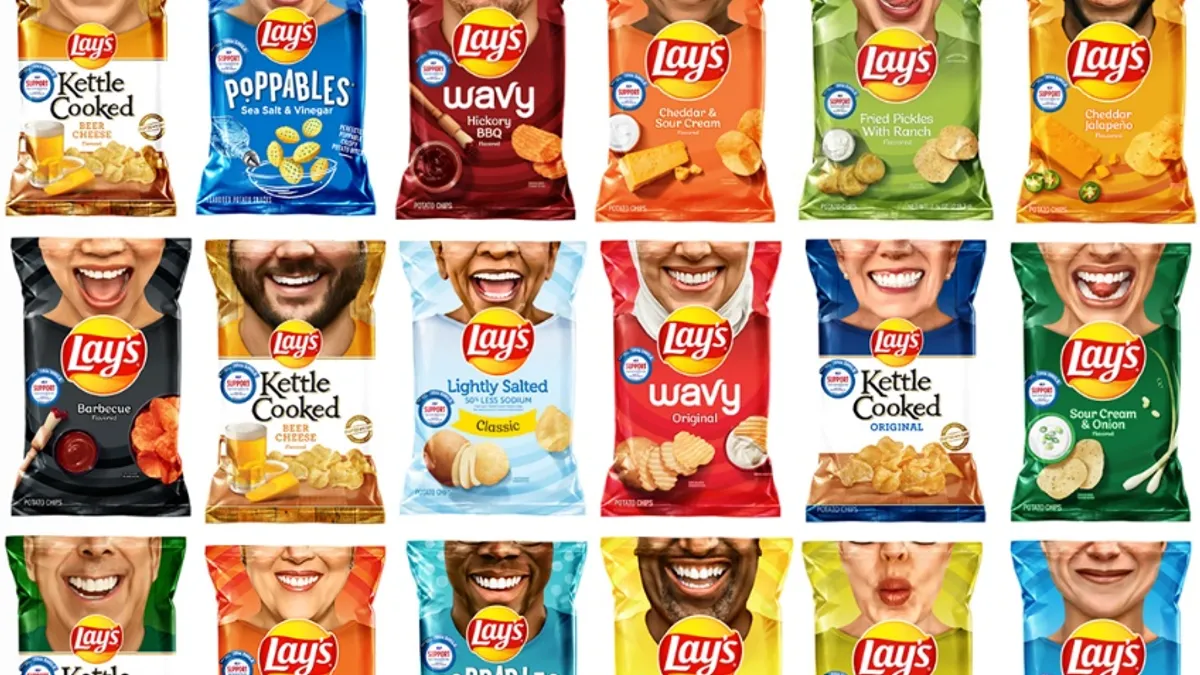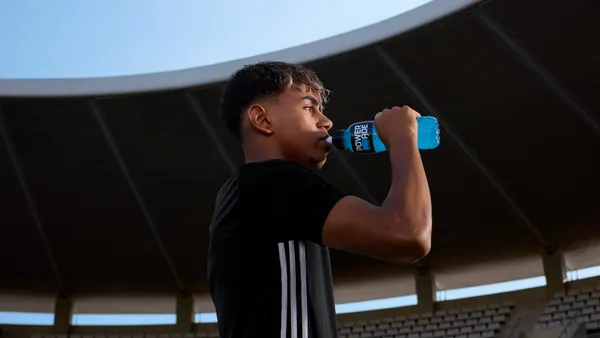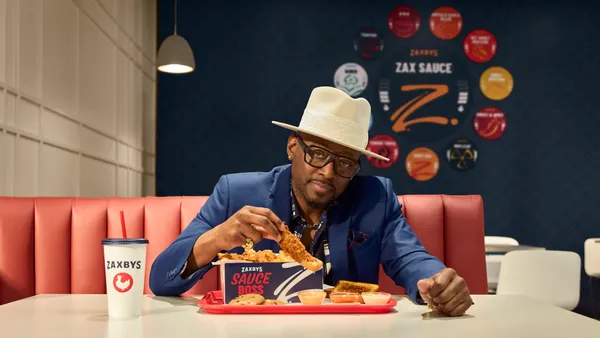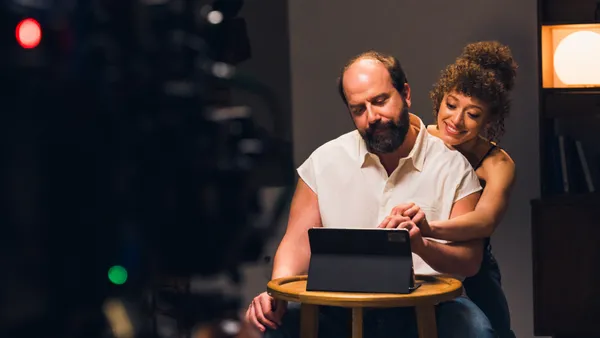Dive Brief:
- Lay's potato chips, which is PepsiCo's Frito-Lay unit, is bringing back its limited-run "Smiles" packaging with more than 70 new designs of its chip bags that show the smiles of 30 people who are helping their communities, according to details shared with Marketing Dive. These "Everyday Smilers" include people who have helped others facing homelessness, hunger or limited access to healthcare services, among other causes.
- Because the pandemic disrupted a planned photo shoot with the "Everyday Smilers," Lay's asked them to take selfies on their smartphones and submit them digitally. Lay's used computer-generated imagery (CGI) technology to enhance the amateur selfies and transfer them to its packaging.
- At a time when people are looking for something to smile about, the campaign's goal is to raise as much as $1 million for Operation Smile, a medical charity that provides surgical care worldwide to people with cleft conditions. As part of the "Smiles" campaign, Frito-Lay reintroduced for a limited time three of its "fan-favorite" chip flavors: Fried Pickles with Ranch, Kettle Cooked Beer Cheese and Hot Sauce.
Dive Insight:
Lay's "Smiles" campaign is proving to be an enduring effort for the snack brand with its third iteration in the past few years. The campaign takes on new relevancy this year and could have a greater emotional impact for consumers who may be seeking more joy in their lives as masks prevent them from sharing smiles, on top of having a long list of things to be worried about in a year that's seen a pandemic, economic turmoil, natural disasters and social unrest.
A strong reception for previous iterations of the campaign could be one reason for its longevity. Lay's last year printed QR codes on chip bags, letting consumers scan the special codes with their smartphones to learn more about the person featured on each bag. More than 71,000 people scanned the codes, a sign that consumers sought to engage with the campaign after buying Lay's chips.
QR codes have made a comeback in recent years with improvements to the mobile-based technology that supports a variety of marketing applications and transactions. Burger King, for example, has included QR codes in recent campaigns, including several TV commercials during the Video Music Awards on MTV, and its "QR Whopper" giveaway that asked viewers to scan a QR code floating around the TV screen for a chance to win free food.
Lay's reboot is the latest example of how marketers have shifted plans for photo shoots during the coronavirus pandemic. Instead of bringing its "Everyday Smilers" to Dallas for a professional photo shoot in March — just as many cities and states were enforcing temporary lockdowns — Lay's quickly pivoted by sending instructions on how to take a selfie with a smartphone.
Lay's leveraged CGI technology to meet safety demands, a sign of how imaging technology has gained traction during the pandemic. Advertisers also have turned to "deepfake" technology to alter digital images and create video commercials as the pandemic temporarily prevented live shoots. State Farm Insurance, for example, developed a commercial with doctored footage of ESPN anchor Kenny Mayne to make it appear as though he were broadcasting in the late 1990s, The New York Times reported. Before the pandemic started, Lay's sister brand Doritos used a new app called Sway: Magic Dance to let mobile users create augmented videos based on its Super Bowl commercial showing singer Lil Nas X and actor Sam Elliott in a dance battle over Cool Ranch tortilla chips.
Lay's focus on community impact comes as more brands aim to demonstrate their commitment to helping others, a message that has become heightened during the pandemic and calls to end racism. Clothing retailer Gap recently kicked off its "Stand United" campaign to promote diversity and inclusion, a message that's likely to resonate with consumers who said they want brands to address social issues including racism, per a recent study.
Parent company PepsiCo is seeing strong growth in its Frito-Lay snack division as more consumers eat at home instead of going out to restaurants or having lunch at the office or in school. Frito-Lay North America reported sales growth of 6% in Q2 from a year earlier, contrasting with PepsiCo's 3.1% drop in revenue as soft drink sales slipped with the closures of restaurants, movie theaters and sports stadiums, CNBC reported. The snacking mini-boom led PepsiCo to launch two direct-to-consumer (DTC) websites that let people order products for home delivery, including one dedicated to its snack brands. Snacks.com has more than 100 Frito-Lay products including Lay's, Tostitos, Cheetos and Ruffles, as well as dips, crackers and nuts, Marketing Dive's sister publication Food Dive reported.














